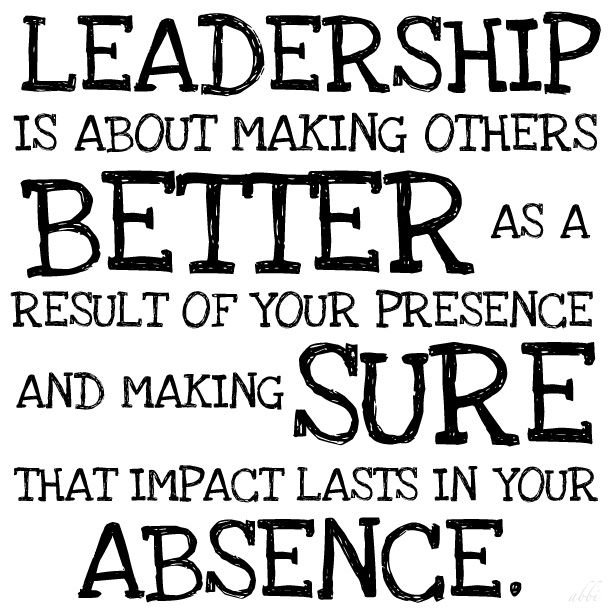Podcast: Play in new window | Download (Duration: 6:54 — 6.7MB)
Today’s audio is 6:54 minutes long.

Much of what goes on here could be categorized as “leadership.” Remember, leadership involves people. Management involves processes, or the work people do. You need both to have a highly effective organization.
Today, let’s talk a bit about leadership presence. It’s a broad and deep subject so today I really want to focus more on reputation management.
Increasingly, I find too many people and companies that don’t deal with the realities of today. We’re all so busy trying to predict the future and trying to out-run or overcome the past. We overlook the present conditions. Those are the ones that judge us and our organizations.
Why This Matters To Your Career
Leaders, people just like you – people who have a position of authority, have an obligation to their career just like everybody else. Except the stakes usually seem higher. I say “seem” because no matter who we are, or how much we earn, or what title we wear, our work and career are very important to us. To believe that a higher position makes you a better human being is to suffer enormous delusion. You aren’t better than anybody, but you should be a person performing at a higher level consistently. And because of your authority and influence, the scope of your career is broader. That means, you can impact more people…simply by virtue of your position.
Take it for granted and you may find yourself losing footing on the slippery rocks of leadership. Lots of leaders have experienced great falls because they didn’t properly protect their reputation. They believed their career was all due to their own brilliance. None of us are that brilliant. Even Steve Jobs needed The Woz, Steve Wozniak. Sometimes leaders need an arch rival. Edison was pushed by Tesla. Carnegie by Rockefeller. You get the idea. No man is an island.
Watch your step because the next one might be a doozy. There are some pitfalls to be aware of…and you can’t take your eyes off of them because they never go away.
Leadership Pitfalls
1. Setting unclear expectations for your employees
Holding people accountable is among the toughest chores facing leaders. But before you can focus on that you have to be able to establish expectations your employees can understand and execute. You can’t be ambiguous or cloudy in your direction. Spend whatever time is necessary to make sure everybody understands what you expect. You’ll avoid lots of grief and excuse-making later on.
2. Ignore wins
You can blow up morale in one fell swoop. Stay focused only on the next objective without taking any time to celebrate your team’s just hard fought victory.
Embrace the philosophy, “It’s their job” and you’ll quickly build a group dedicated to the bare minimum of doing their job. When you go dine out do you ever thank the server? Why? It’s their job to serve you. Hopefully, you do thank them — because it’s the right and polite thing to do. Besides, everybody – including YOU – wants to feel appreciated.
Do you remember the last time you busted your tail to complete a project for your boss and he never recognized your hard work? Bottle that feeling and let it fuel your own leadership style.
3. Don’t worry about holding anybody accountable
Trust all your employees to do superior work without any help from you. Assume everybody is doing well. When you do notice a problem, ignore it. Maybe it’ll go away.
Or see if your employees will handle it themselves. That’d be nice, right?
4. Ignore poor behavior (and poor performance)
It requires diligence to be watchful. Don’t worry about that. Stay pre-occupied. When your employees behave poorly (even badly), don’t sweat it. Maybe they’ll do better next time. And if they don’t, then make sure you take lots of time to really think it over before you address it.
5. Look over the shoulder of your employees
You should redefine the role of the backseat driver. Work so that your picture appears in Wikipedia when people search, “backseat driver.” Micromanage all the work. Microlead all your people. Remember, if it comes out of your department then it’s got to have your DNA on it. The only way to do that is to make sure touch everything. I mean, EVERYTHING.
6. Take credit for everything good. Blame others for every failure.
Where would these people be without you? If not for you, the whole place would likely burn to the ground.
Take personal credit for your team’s good work. Blame the team for their poor work. Rule number one, always promote yourself.

Conclusion
High performance can happen spontaneously, but don’t count on it. Every now and again a leader stumbles into it, but in time it becomes clear the leader had nothing to do with it. You don’t want that to characterize your career. Luck and random chance aren’t solid career strategies.
Practice intentional leadership. Act with purpose. Behave with your team’s best interest at heart. That doesn’t mean you give them everything they want. It means you give them what’s good for their longterm well-being. It means when they need correction, you don’t hesitate to give it. When they’re down and out, it means you lift them up with encouragement. When they’re confused, it means you clarify and teach.
Step into your closet and grab all the hats you’ve been missing. You’re going to need them. At some point in your career.